The ARC-1222 from Areca will grow and change with your storage needs. This high-performance PCIe-to-SAS RAID host adapter provides up to 8 SAS/SATA II peripheral devices. This card features the Intel IOP348 I/O processor, the fastest I/O processor in Intel’s product line, offering unlimited storage design flexibility from scalability, cost and performance perspectives.
This card supports RAID levels 0, 1, 10, 3, 5, 6, 30, 50, 60, Single Disk or JBOD and has a maximum of 256MB of ECC DDR2 onboard cache. You work hard for your money; put it to good use with this highly economical, yet very effective controller.
The ARC-1222 from Areca will grow and change with your storage needs. This high-performance PCIe-to-SAS RAID host adapter provides up to 8 SAS/SATA II peripheral devices. This card features the Intel IOP348 I/O processor, the fastest I/O processor in Intel’s product line, offering unlimited storage design flexibility from scalability, cost and performance perspectives.
This card supports RAID levels 0, 1, 10, 3, 5, 6, 30, 50, 60, Single Disk or JBOD and has a maximum of 256MB of ECC DDR2 onboard cache. You work hard for your money; put it to good use with this highly economical, yet very effective controller.
 Serial Attached SCSI InterfaceWith two internal mini-SAS port, the Areca ARC-1222 supports both SAS and SATA devices for enhanced flexibility and speed.
Serial Attached SCSI InterfaceWith two internal mini-SAS port, the Areca ARC-1222 supports both SAS and SATA devices for enhanced flexibility and speed. RAID SupportThe Areca ARC-1222 supports multi-level RAID configuration including RAID 0, 1, 3, 5, 6, 10, 30, 50, 60 and JBOD for better performance, enhanced data security and flexible capacity upgrades.
RAID SupportThe Areca ARC-1222 supports multi-level RAID configuration including RAID 0, 1, 3, 5, 6, 10, 30, 50, 60 and JBOD for better performance, enhanced data security and flexible capacity upgrades. 256MB On-board MemoryThe Areca ARC-1222 features 256MB on-board DDR2 533 SDRAM with ECC protection for maximum data integrity.
256MB On-board MemoryThe Areca ARC-1222 features 256MB on-board DDR2 533 SDRAM with ECC protection for maximum data integrity. On-board I/O ProcessorThe Areca ARC-1222 features an integrated 800MHz Intel IOP348 processor for fast hardware RAID parity calculations.
On-board I/O ProcessorThe Areca ARC-1222 features an integrated 800MHz Intel IOP348 processor for fast hardware RAID parity calculations. PCI Express x8 InterfaceThe Areca ARC-1222 features the PCI Express x8 interface which provides sufficient throughput and full-duplex operation for enhanced performance.
PCI Express x8 InterfaceThe Areca ARC-1222 features the PCI Express x8 interface which provides sufficient throughput and full-duplex operation for enhanced performance.
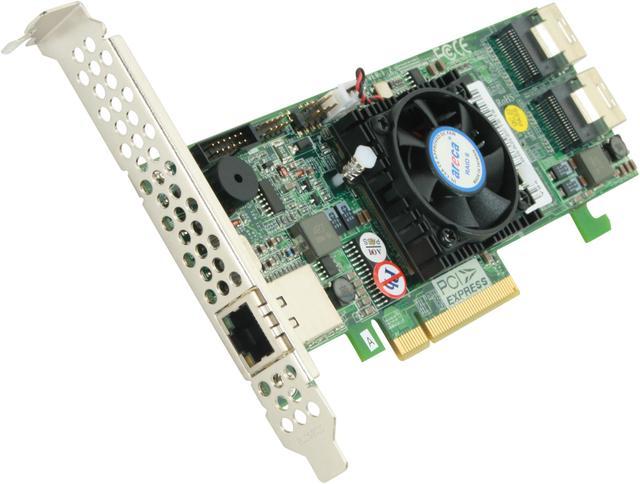
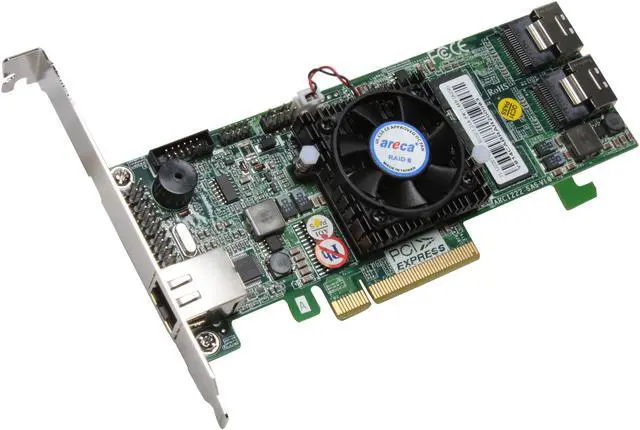


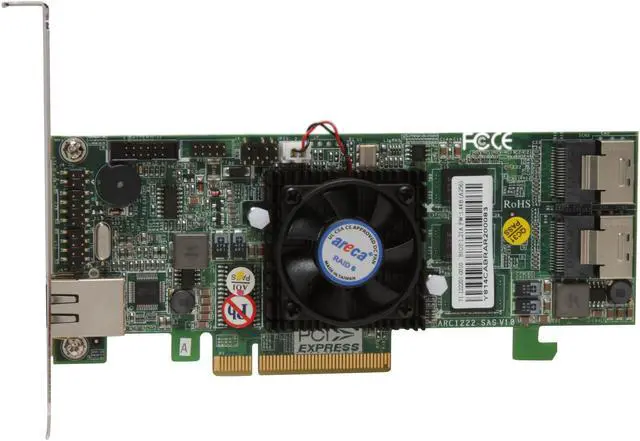
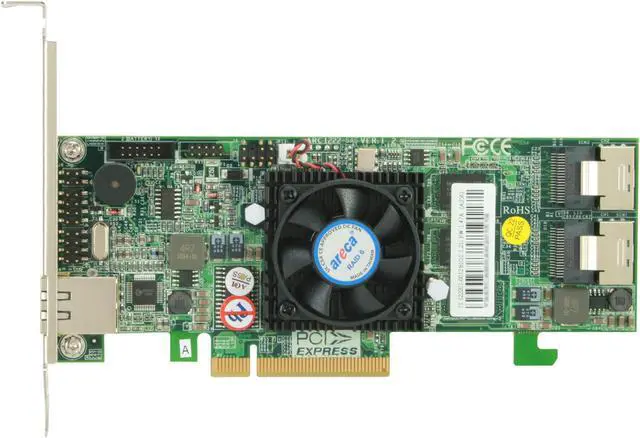
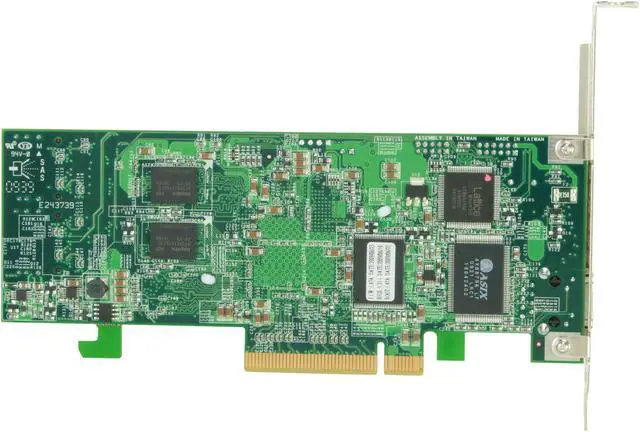
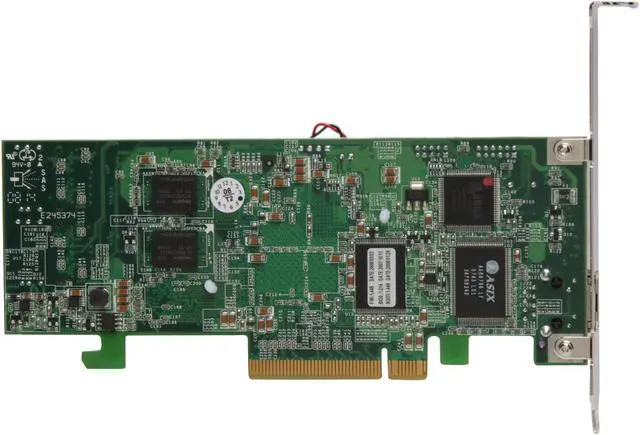
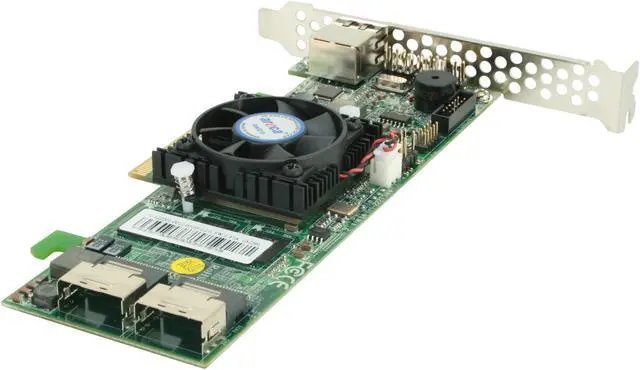
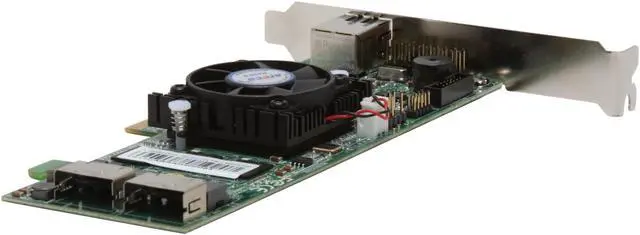
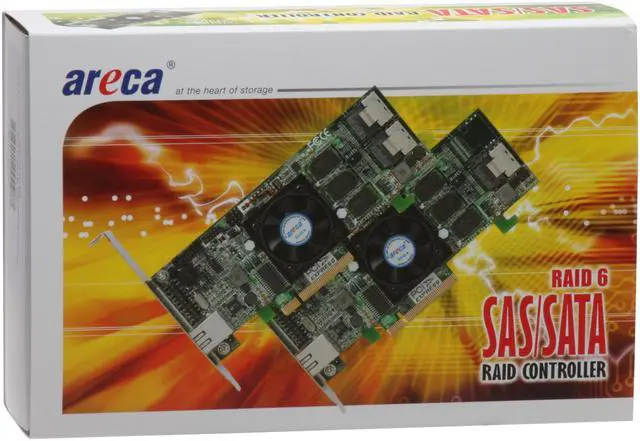
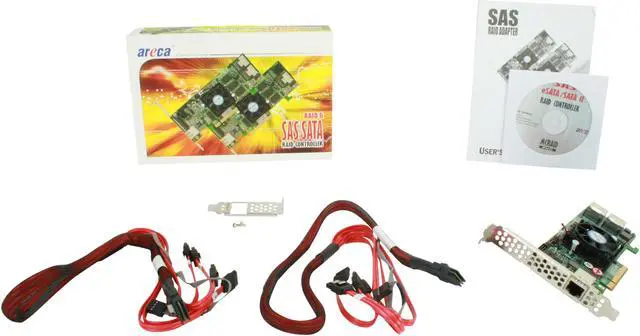
 Serial Attached SCSI InterfaceWith two internal mini-SAS port, the Areca ARC-1222 supports both SAS and SATA devices for enhanced flexibility and speed.
Serial Attached SCSI InterfaceWith two internal mini-SAS port, the Areca ARC-1222 supports both SAS and SATA devices for enhanced flexibility and speed. RAID SupportThe Areca ARC-1222 supports multi-level RAID configuration including RAID 0, 1, 3, 5, 6, 10, 30, 50, 60 and JBOD for better performance, enhanced data security and flexible capacity upgrades.
RAID SupportThe Areca ARC-1222 supports multi-level RAID configuration including RAID 0, 1, 3, 5, 6, 10, 30, 50, 60 and JBOD for better performance, enhanced data security and flexible capacity upgrades. 256MB On-board MemoryThe Areca ARC-1222 features 256MB on-board DDR2 533 SDRAM with ECC protection for maximum data integrity.
256MB On-board MemoryThe Areca ARC-1222 features 256MB on-board DDR2 533 SDRAM with ECC protection for maximum data integrity. On-board I/O ProcessorThe Areca ARC-1222 features an integrated 800MHz Intel IOP348 processor for fast hardware RAID parity calculations.
On-board I/O ProcessorThe Areca ARC-1222 features an integrated 800MHz Intel IOP348 processor for fast hardware RAID parity calculations. PCI Express x8 InterfaceThe Areca ARC-1222 features the PCI Express x8 interface which provides sufficient throughput and full-duplex operation for enhanced performance.
PCI Express x8 InterfaceThe Areca ARC-1222 features the PCI Express x8 interface which provides sufficient throughput and full-duplex operation for enhanced performance.